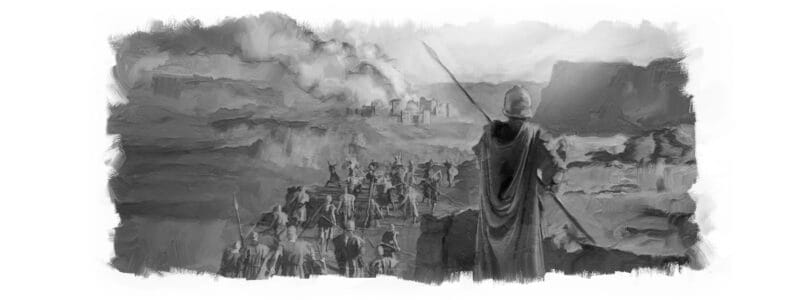What if AI Exposed the Devil
Satan’s tactics are subtle—but not invisible.
What if AI exposed the Devil’s strategy and God’s Word helps you see the solution? #AI #godsgrace #satan Source: https://www.youtube.com/watch?v=P6r1SdKh8Qw
October 24: ADRA supports families that fled war in South Sudan & More Global News
On this episode of ANN: In Uganda, families who fled war in South Sudan find refuge and start over with the support of ADRA volunteers from Norway. In Mexico, a digital missionary campaign unites social networks, radios, and churches throughout the country, reaching nearly two million people. Plus, in Spain, HopeMedia celebrates 25 years with new studios and a renewed vision. Stay tuned as ANN brings everything you need to know about what is happening in the church worldwide. For a deeper dive into these headlines, visit https://www.adventist.news ANN is the official news channel of the Seventh-day Adventist Church. Follow ANN on social media!
WhatsApp: https://www.whatsapp.com/channel/0029Vap6xVnLSmbezxbMpa18 Instagram: https://www.instagram.com/adventistnews/ Facebook: https://www.facebook.com/AdventistNews X: https://x.com/adventistnews Source: https://www.youtube.com/watch?v=QMX520P3jtk
🌍 Adventist News Network – October 24: ADRA supports families that fled war in South Sudan & More Global News
 Adventist News Network – October 24: ADRA supports families that fled war in South Sudan & More Global News |
Adventist News Network – October 24: ADRA supports families that fled war in South Sudan & More Global News |
This week on ANN: |
· In Uganda, families who fled war in South Sudan find refuge and start over with the support of ADRA volunteers from Norway.
· In Mexico, a digital missionary campaign unites social networks, radios, and churches throughout the country, reaching nearly two million people.
· Plus, in Spain, HopeMedia celebrates 25 years with new studios and a renewed vision.
· Stay tuned as ANN brings everything you have to know about what is happening in the church worldwide.
Sabbath: God Fights for You
Daily Lesson for Sabbath 25th of October 2025
Read for This Week’s Study: Genesis 15:16; Leviticus 18:24-30; 2 Timothy 4:1,8; Exodus 23:28-30; Deuteronomy 20:10,15-18; Isaiah 9:6.
Memory Text: “And Joshua captured all these kings and their land at one time, because the Lord God of Israel fought for Israel” (Joshua 10:42, ESV).
The book of Joshua contains some disturbing scenes. Serious questions are raised by the concept of a divine or holy war portraying a group of people with a God-given mandate to destroy another group.
The issue of divine war in the Old Testament is challenging. God appears in the Old Testament as the sovereign Lord of the universe; therefore, everything that happens must, somehow, be related to His direct or indirect will. So, the question “How can God allow such things?” becomes inevitable. Last week, we saw that God Himself is involved in a conflict that is far greater than any war or battle fought in human history, a battle that permeates every aspect of our lives. We saw, too, that the events of both biblical and secular history can be fully understood only in light of this conflict.
This week, we continue to explore the complexity of divinely sanctioned wars, the limitations and conditions of divine war, the final vision of peace offered by the Old Testament prophets, and the spiritual implications of such wars.
*Study this week’s lesson to prepare for Sabbath, November 1.
 (0)
(0)A Prayer to Rest on the Sabbath
Take a moment to slow down, breathe, and remind yourself that God is in control. Rest in His peace today, knowing He’ll be with you in the week to come. Save this prayer as a reminder to make space for God’s rest. Source: https://www.youtube.com/shorts/Wbplk6R4gpU
Gesù è il Giubileo che diventa persona: libertà, grazia e condivisione prendono vita.
Remember Your Creator This Sabbath Day
The Sabbath is a weekly reminder of God’s power as Creator and Redeemer. It is a time to pause from work and worship the One who formed the heavens and the earth, and who still cares deeply for you. As you keep this Sabbath, take time to honor the God who created you, sustains you and invites you into His rest. Share your reflection and use #MySabbathMoment. #AWR360 #HappySabbath Source: https://www.youtube.com/shorts/qe8bDMfTicg
God First: Your Daily Prayer Meeting 1155
"If you believe, you will receive whatever you ask for in prayer" (Matthew 21:22, NIV).
Tag someone in need of prayer, and kindly share your prayer requests here:
https://wkf.ms/3DBuapQ Source: https://www.youtube.com/watch?v=ASCeJ6fIH68
Leaders From 15 Adventist Health-Care Institutions Meet in South Korea
The 2025 Adventist Health Care Association (AHCA) Presidents’ Council was held at the Fairfield Marriott Songdo Beach in Busan, South Korea, from September 29 to October 1, 2025. More than 80 representatives from 15 medical institutions under the … Source: https://adventist.news/news/leaders-from-15-adventist-health-care-institutions-meet-in-south-korea
- « Previous Page
- 1
- …
- 176
- 177
- 178
- 179
- 180
- …
- 4858
- Next Page »


